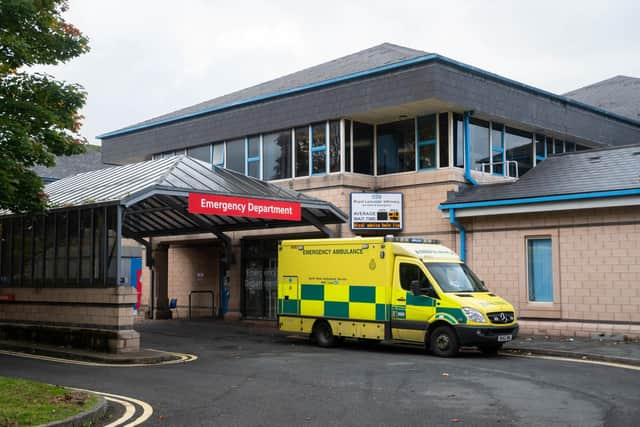Concern as ambulance patients continue to face delays at A&E in Lancaster
and live on Freeview channel 276
New NHS England figures show 70 patients waited between 30 and 60 minutes in an ambulance when they arrived at the Royal Lancaster Infirmary, Westmorland General and Furness General Hospitals in the week to December 3.
This meant 14% of 500 patients experienced delays – an increase from 9% during the same period in 2022. The figures cover patients for whom the handover time was known.
Advertisement
Hide AdAdvertisement
Hide AdMeanwhile, 27 other people (5%) were forced to wait for more than an hour, and 179 handovers (36%) took between 15 and 30 minutes.


Danielle Jefferies, senior analyst at health think tank The King's Fund, said: “The combination of tight budgets, rising Covid-19 and flu cases, and industrial action make it unlikely that ambulance handovers will get below the 15-minute target this winter.
“The Government needs more long-term, big-picture thinking if it’s to truly solve the issue of ambulance handover delays.”
The NHS states trusts should complete 95% of all ambulance handovers in 30 minutes and all should be conducted in less than one hour.
Advertisement
Hide AdAdvertisement
Hide AdBut across the country, 10% of patients were held for over an hour in the week to December 3, while 17% took at least 30 minutes.
Ms Jefferies added: “Long queues of ambulances waiting to hand over outside A&E have a real impact on patient safety, patient experience and the morale of staff.
“These figures suggest there is some hope for the NHS that this winter will not be a repeat of last. However, there is no doubt this will still be a tough winter for ambulance crews and A&E staff alike.”
Jessica Morris, fellow at the Nuffield Trust, said she expects more difficult weeks ahead thanks to very high bed occupancy rates and the threat of looming strikes.
Advertisement
Hide AdAdvertisement
Hide AdAn NHS England spokesperson said: "As part of our urgent and emergency care recovery plan, we are rolling out a host of measures to both improve hospital flow, reduce ambulance handover delays further and increase the number of ambulance hours on the road, including 5,000 extra core beds to boost capacity and reduce waiting times for patients.”